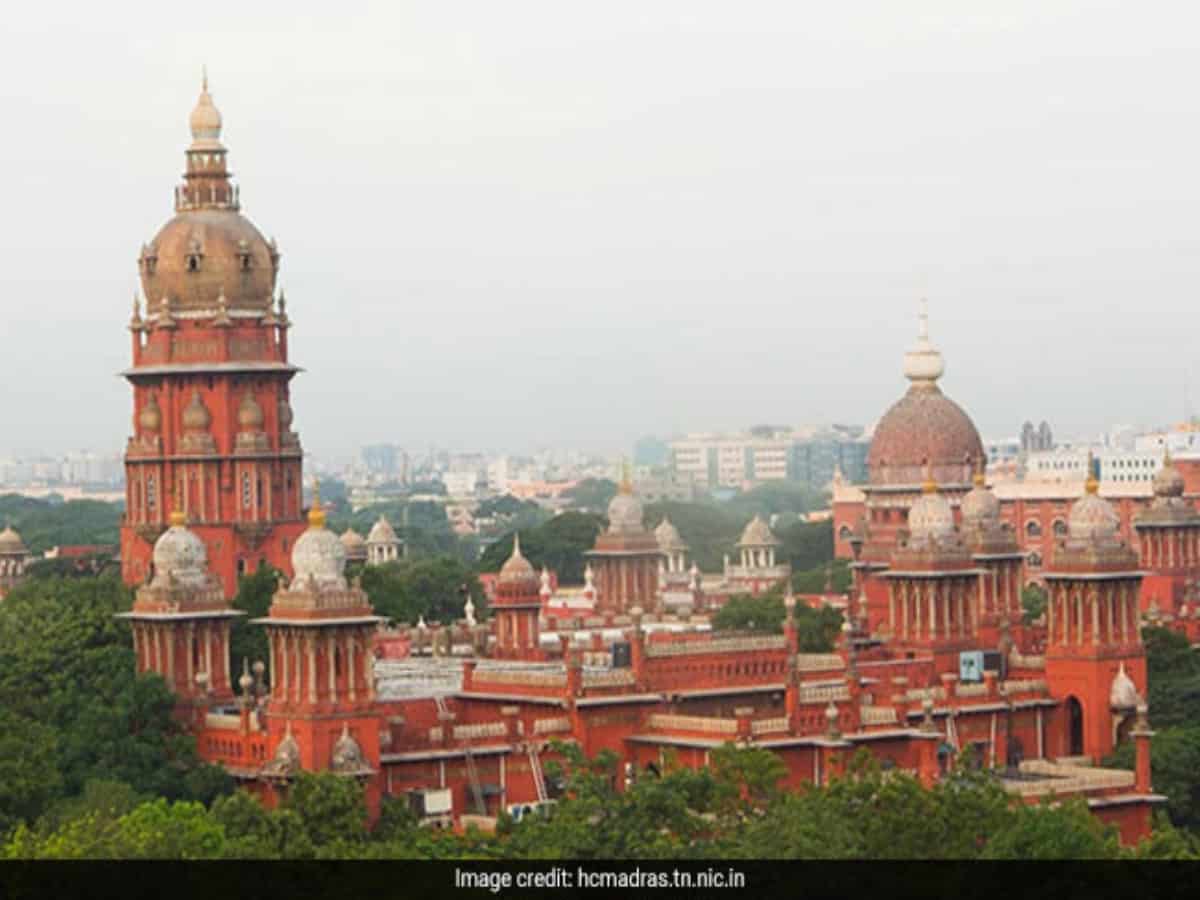
Madurai: The Madras High Court has directed the Tamil Nadu government to implement a ban against the usage of mobile phones in temples across Tamil Nadu, “so as to maintain the purity and sanctity.”
Justice R Mahadevan and Justice J Sathya Narayana Prasad of the HC bench here gave the direction to the State Hindu Religious and Charitable Endowment (HR&CE) Department on Friday while hearing a public interest litigation (PIL).
Petitioner M Seetharaman sought a direction to the authorities concerned to take effective measures to prohibit the possession and usage of android cellphones inside the premises of Arulmigu Subramaniya Swamy Temple at Tiruchendur in Tuticorin district in the State. It is one of the six abodes of Lord Muruga.
Among others, the petitioner contended that since the said temple is an ancient shrine, for free and peaceful dharsan, the usage of camera to videograph or photograph the Deeparathanai, poojas and other rituals is a hindrance. All the devotees are in possession of mobile phones and they take photographs or videos within the premises of the temple, without any restrictions.
Taking photographs of the valuable idols is not only contrary to the Agama Rules (related to a temple’s rituals), but also endangers the security of the temple and its valuables, he submitted.
The petitioner also expressed apprehension of photographs of women devotees being taken without their consent, which will be misused.
The court was informed by the temple authorities that steps have been taken to impose restrictions for usage of cell phones by the priest, devotees, public and others inside the shrine, appoint self-help groups to supervise the usage of cell phones and set up security counters for deposit of cell phones.
“In the light of the aforesaid report, which discloses that the second respondent (Executive Officer/Joint Commissioner) has already taken all effective measures for ban on mobile phones, decent dress code, etc. inside the premises of the subject temple, this court directs the respondent authorities to implement the aforesaid conditions in letter and spirit, besides directing the Superintendent of Police and the District Collector of Thoothukudi (Tuticorin) District, to accede to the request made by the second respondent.”
“The first respondent (The Commissioner, HR&CE) is directed to comply the above directions in all the temples of Tamil Nadu so as to maintain the purity and sanctity,” the bench ruled.
The judges said temples are great institutions and they have traditionally been central to every one’s life.
“It is not only a place of worship, but also integral to the socio-cultural and economic life of people. It is a living tradition that still draws hundreds of thousands of devotees seeking to experience divinity and spirituality offered by the temple. The systems and structures which support this experience, make a temple to have its own management needs,” the bench said.
While there cannot be any dispute that under Article 25 of the Constitution, all people are entitled to freely profess, practice and propagate religion, however, such freedom to act and practise can be subject to regulations, inside the premises of the temple.
“The Rules under the Tamil Nadu Temple Entry Authorization Act, 1947 also prescribe certain code of conduct for maintenance of order and decorum in the temple, apart from the regulations made by the trustee or authority as the case may,” the court said.
The bench pointed out a ban on mobile phones has been introduced and successfully implemented in The Sri Krishna Temple at Guruvayur (Kerala), Meenakshi Amman Temple at Madurai and Sri Venkateshwara Temple at Tirupati in Andhra Pradesh.
There are separate security counters in each of these temples to deposit mobile phone before entering the premises, it said.
(Except for the headline, this story has not been edited by Siasat staff and is published from a syndicated feed.)
